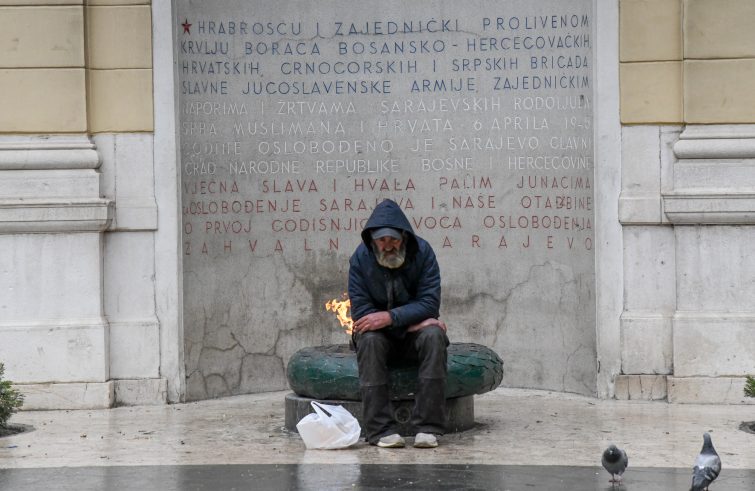
Having ventured beyond our boundaries by fasting from the neurotic safety nets we are familiar with, realising that only prayer enables us to reach beyond ourselves towards a viable alternative that is not mere animal life, should have increased our understanding of our fellow others, governed by our same limitations and weaknesses.
This is the meaning of the “third weapon that is penance”, which, moreover, is the purpose of the entire Christian journey: love for neighbour – the awareness of the needs of neighbour, needs that are so similar to our own, yet easy to forget when we are so preoccupied with ourselves. I am hungry, others are hungry too; I need consolation and support, others need comfort and support too; I am a poor sinner riddled with limitations and inconsistencies who wishes to be embraced, and even others are poor sinners riddled with limitations and inconsistencies who wish to be embraced – by me.
While we face the temptation to save ourselves alone, to grab what we can so as to survive the anguish that temptation instils into us from an early age, fasting should have shown us that we are far too much in thrall to our standard solutions to emptiness. Prayer should have put us into perspective, and almsgiving – that is, caring for my fellow other who is as miserable as myself, -should help us understand that alone we achieve nothing, and that joy, with the Father and the bread, can never be “mine” but always “ours.”
Some time ago, a group of rich and powerful elders said that there are too many of us on the planet, and that to avoid global warming we should stop having children. Behold the world of the mundane: a comfortable, refreshing place inhabited by a privileged few in their eighties… and then sundown, and then nothing. Selfishness fulfilled in empty darkness on a graveyard planet.
Almsgiving, which does not consist in offering small change but mercy for those in need, those who suffer as I do when I am in need, can save us from all this,
teaching us that it is indeed true that while we tend to be encumbered by many things (as fasting has revealed to us), and that while we are small, victims of a cruel ideal ego that is very different from our true God (as prayer has shown us), we can still try to love, in our fragile and clumsy way, our brothers and sisters, and that their destiny is our destiny, and that Easter is not celebrated alone, because if the household is too small for a whole lamb you must share it with your neighbour (cf. Ex 12: 4ff.).
The insane blindness that is driving the powerful of this world deeper into war shows that only by trying to empathise with our neighbours’ fragility – more akin to our own than we may wish – and attempting to attune our thoughts to others, to think in the plural, will we be able to save ourselves from ourselves.










